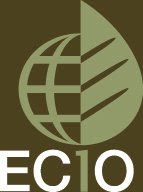 Is green, renewable energy a sexy enough topic to be the centrepiece of a coffee table book? Tom Rand, who leads cleantech development at Toronto’s MaRS Centre, believes so. In fact, he figures that it’s just such a book that will expose a broader section of the population to the issues, technologies and opportunities around renewable energy. Rand has written a soon-to-be-released book called Kick The Fossil Fuel Habit: 10 Clean Technologies To Save Their World. The “their” being our children and their children and so on. The technologies or subjects under the spotlight are solar, wind, geothermal, biofuels, hydropower, ocean (tidal and wave), smart buildings, conservation, transportation and the energy Internet.
Is green, renewable energy a sexy enough topic to be the centrepiece of a coffee table book? Tom Rand, who leads cleantech development at Toronto’s MaRS Centre, believes so. In fact, he figures that it’s just such a book that will expose a broader section of the population to the issues, technologies and opportunities around renewable energy. Rand has written a soon-to-be-released book called Kick The Fossil Fuel Habit: 10 Clean Technologies To Save Their World. The “their” being our children and their children and so on. The technologies or subjects under the spotlight are solar, wind, geothermal, biofuels, hydropower, ocean (tidal and wave), smart buildings, conservation, transportation and the energy Internet. Now, there’s no shortage of books out there about green energy, but there’s little that explains it so simply and with the graphics and beautiful pictures that show how it’s done and how it can help change our world for the better. This is an accessible package, cleverly assembled and pleasant to look at, while at the same time making it enjoyable to learn about the technologies that, while seemingly “alternative” or “new” today, are destined to become a dominant and permanent way of energizing future generations and the economies that support them.
I’ve written about Rand before. He’s one of a handful of ambitious business leaders who is trying to convince our federal and provincial governments to create “green bonds” that can be sold to the public and used to finance renewable-energy projects across the country. Sadly, our political leaders have been slow to embrace the idea. Rand describes his upcoming book as “advocacy, pure and simple.” The plan is to distribute it through mainstream outlets such as Starbucks to coincide with the big climate-change conference coming up in December in Copenhagen. It will be released in October.
I’m not usually a fan of these kinds of book, but when the format embraces a serious subject — as opposed to movie stars and dogshow pooches — the larger mainstream awareness that can result is too rare in a society overloaded with information. For this reason, Rand’s book should be on every coffee table, out in open view for family and guests to see.
~Tyler Hamilton
http://www.cleanbreak.ca/2009/08/30/clean-energy-comes-to-the-coffee-table/
Tyler Hamilton is senior energy reporter and columnist for the Toronto Star, Canada's largest daily newspaper. In addition to this Clean Break blog, Tyler writes a weekly column of the same name that discusses trends, happenings and innovators in the cleantech market. This blog is a personal project started in April 2005.


